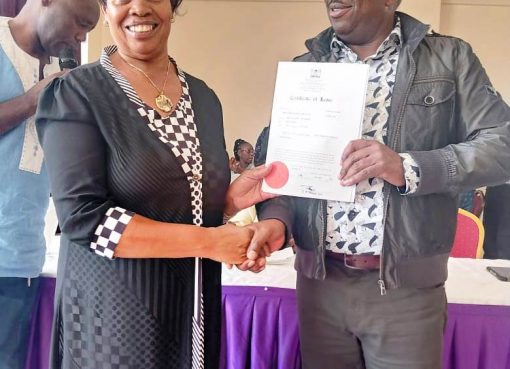There is need to improve the standards of infrastructure in correctional facilities to cater for prison officers and better rehabilitation of inmates, State department for correctional services Principal secretary Mary Muthoni Muriuki has said.
The PS said her department was keen about the welfare of officers and prisoners in their facilities, hence the commitment to improve on their human dignity through provision of improved facilities.
We want to come up with best way forward to improve Prison facilities to ensure they are habitable for officers as well as prisoners as one way of improving the welfare of our officers and inmates, said Muriuki, while on a visit to Ngeria Prison in Uasin Gishu County on Thursday.
Muriuki observed that many of the Prisons infrastructures currently existing were either constructed during the colonial era to punish Africans or in the early sixties when the country attained independence.
“Many of the infrastructure is so dilapidated, calls by counties to relocate some of the Prisons is not just to move them to new sites, but we are looking at a wholesome long-term process aimed at not only improving the infrastructure but also looking at improving other rehabilitative sectors such as training that will benefit the inmates once reintegrated back to the society,” said the PS.
When correcting an individual, she added, it is important to show them empathy. “We are not out to punish inmates in our facilities, they need to be in an environment that is conducive for them to function psychologically,” she said.
To ensure human dignity in correctional service facilities is at par with international standards, the PS said they were proposing the one prisoner, one bed, one mattress to ensure inmates sleep on a bed with beddings instead of sleeping on the floor.
The PS who was accompanied by Uasin Gishu County Commissioner Dr. Edison Nyale added that they were also aiming at decongesting the prisons saying 50% of inmates currently were remandees who were occupying space with lots of government resources being spent on them.
By Kiptanui Cherono





